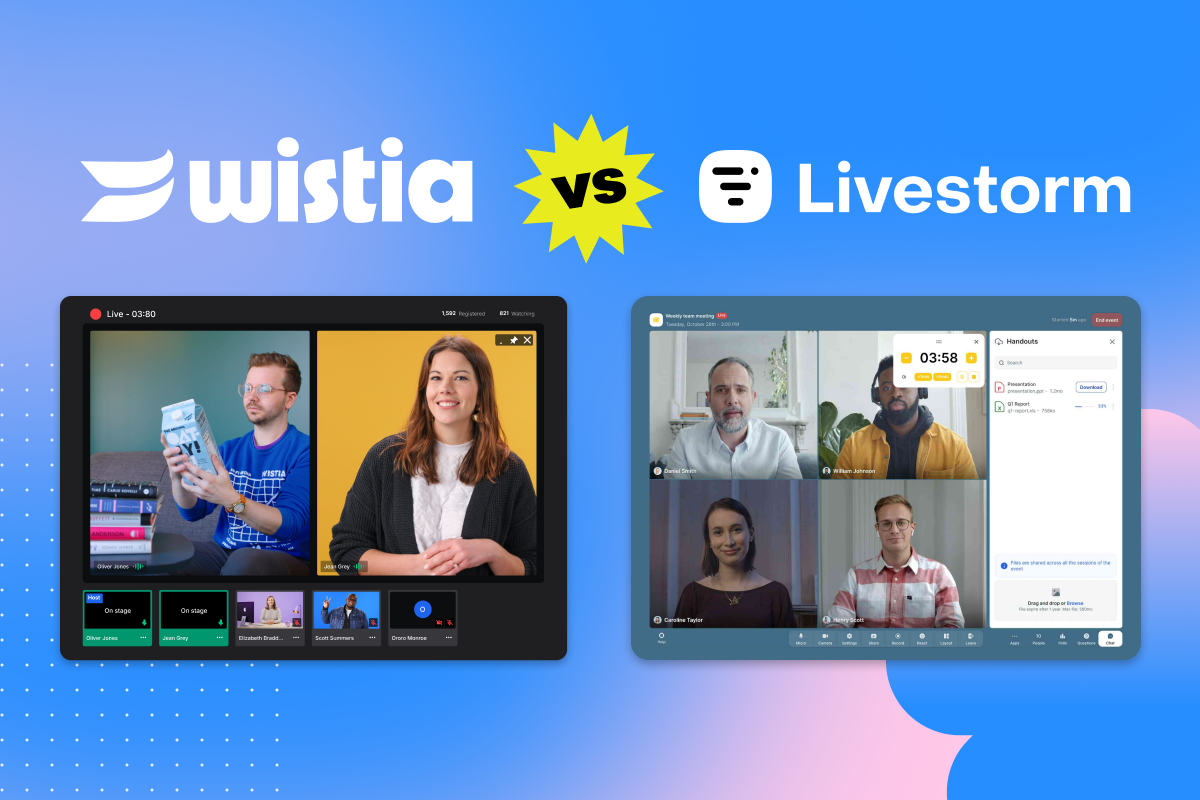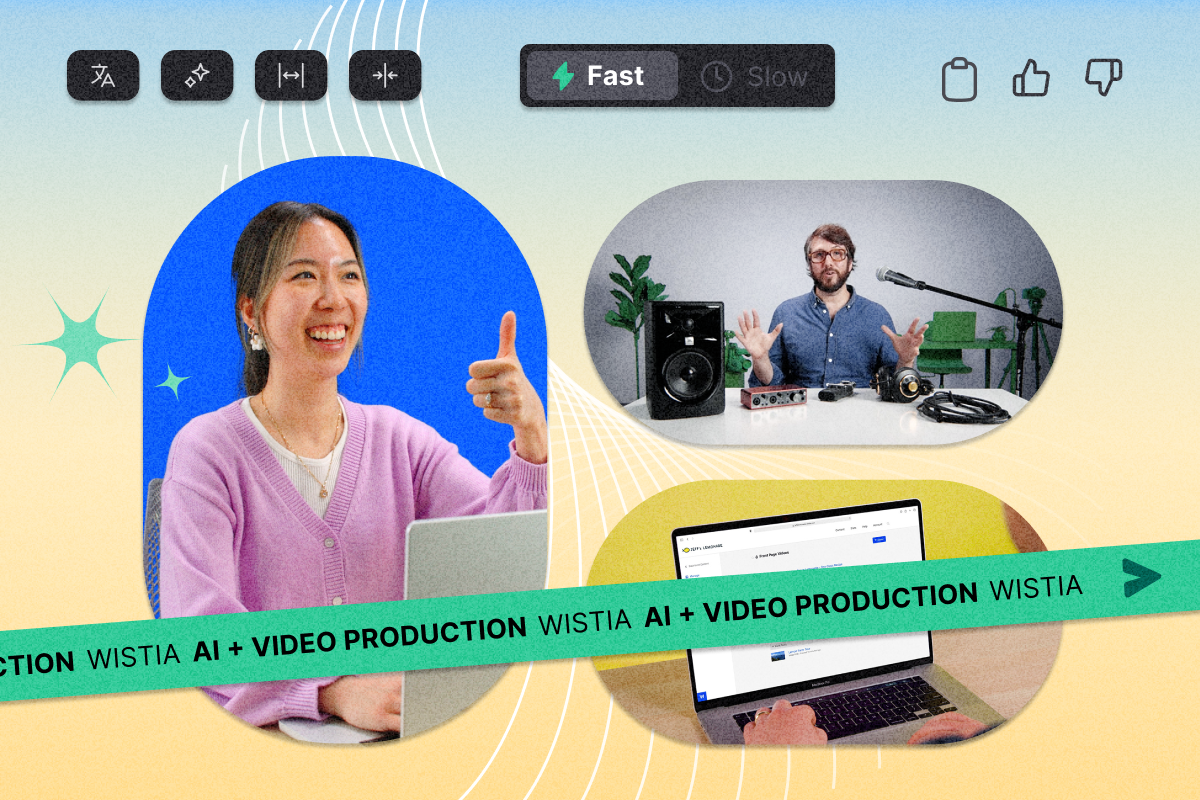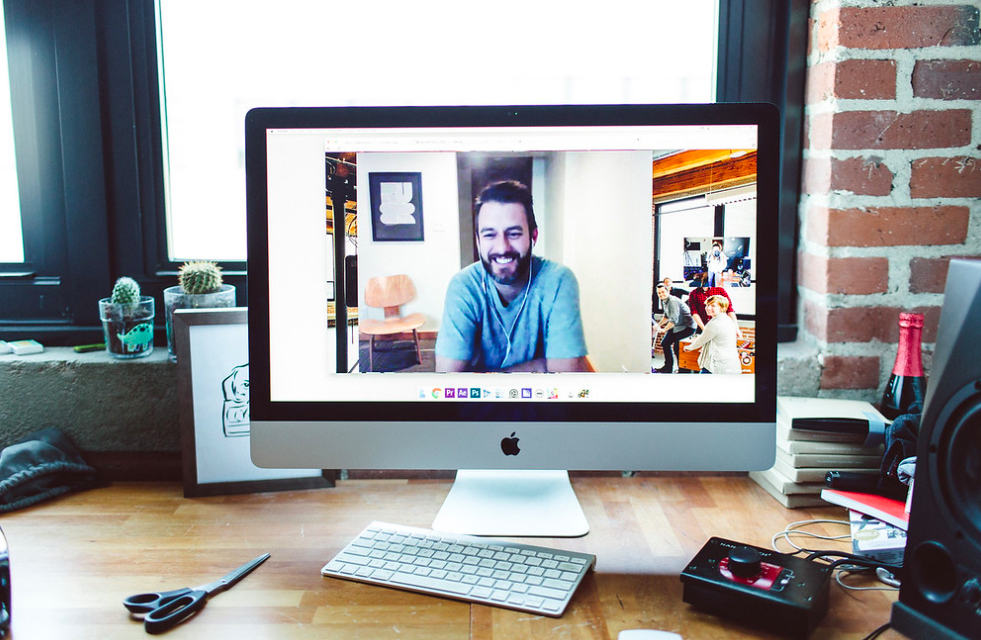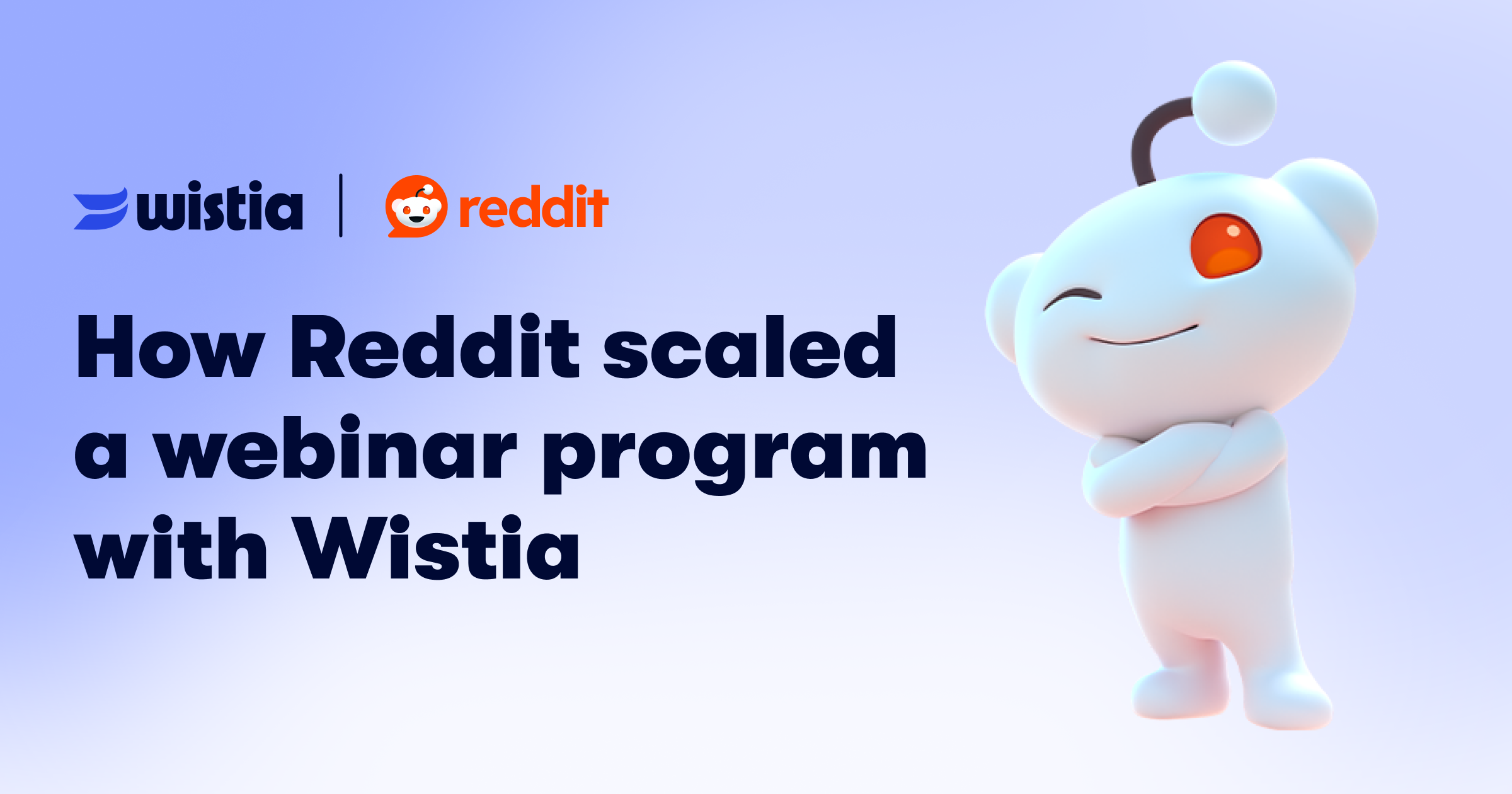Generative AI Ethics: Who Can Use an AI Version of Me?
Here’s what we think about the ethics of using generative AI at your company to create and alter your likeness in videos.
June 15, 2023
Topic tags
Ever wondered if companies can use artificial intelligence (AI) to alter your appearance? Or what rights you have when you’re on camera? If you’re an employer, have you thought about whether you’re allowed to use AI tools to alter someone’s image and voice?
It’s something we’ve been thinking a lot about here at Wistia.
With generative AI, it’s now a breeze to take a voice-over from an on-camera talent, clone their voice using AI, and have them say whatever you’d like with text-to-speech.
While that’s amazing (and it’s the reason we’ve incorporated AI into our production workflow), it also calls for respect and consideration for the individuals featured in your videos.
The ethics of AI in video
As a video producer in the AI age, you should be mindful of ethics almost every time you use a generative AI tool, particularly when it involves voice cloning and AI avatar technologies.
Let’s say you need to update a line in a product video that stars an employee from your company. You can clone their voice using AI and just type in the new line to update the video. Let us show you how we’ve done this at Wistia:
But just because you can clone the voice of a co-worker who starred in a video doesn’t mean you should.
We’re not lawyers, but we’re thinking a bunch about ethical marketing and its impact on our use of generative AI in video.
In this post, we’ll dive into the question of whether employers have the right to utilize AI tools, such as voice cloning and video avatars, to alter someone’s image and likeness. Stick around to hear our take on what you should consider from both a talent/employee standpoint and a business/creative agency perspective.
How talent can protect their AI likeness
If you’re a talent for hire, like a voice-over artist, a spokesperson, or an actor, it’s important to establish your expectations around the use of generative AI ahead of time.
Things to consider as the talent:
- Do you grant your client or employer permission to use generative AI tools to change or alter your image and likeness?
- Which tools can be used?
- Do you only allow the use of AI for the specific project you’ve contributed to?
- Is there a specific length of time you allow the use of AI?
- Do you want to be able to approve the final result?
Of course, it’s possible that if you’re too restrictive in what you’re comfortable with, you might miss out on projects or opportunities to be featured. Ultimately, it’s a matter of your comfort level and the trust you have in your creative partners.
How businesses can use the AI version of employees
As a business or agency planning to use generative AI in video production, you should also set your expectations upfront. This way, you can comfortably integrate AI tools into your production workflow without any worries.
Things to consider as a business or agency:
- What generative AI tools are being used at your company?
- Do you have permission from your talent to use generative AI to change or alter their image and likeness?
- Does your company have a talent release form that’s updated to reflect the use of generative AI tools?
- If your video features an employee, have you accounted for if or when they leave your company?
- Can your business continue using a former employee’s image or likeness?
- How long can you use someone’s image or likeness?
- For what projects can you use someone’s image or likeness?
The responsibility falls on businesses to understand indemnity clauses and the terms of service for the tools they’re using. Don’t go into this lightly! In the unfortunate event of a data breach, you might be held responsible.
Artificial intelligence is here to stay
We know it’s a lot to think about. Seriously, we’re right there with you. The whole artificial intelligence landscape is still a bit of a gray area. Legislation is playing catch-up when it comes to establishing rules and regulations for AI.
Here’s our take at Wistia: We believe that businesses shouldn’t have unrestricted control over someone’s image and likeness for their video marketing projects. Still, there’s no denying that AI is evolving fast and it’s certainly here to stay as part of the video production workflow.
Get a talent release form with AI language
If your business doesn’t have a talent release form for your employees, get one. And if you do have one, consider adding language around generative AI. If you’re an employee or on-camera talent, you should want some protection, too. While generative AI can save you time when it comes to things like overdubs, it’s possible to use AI tools to make anyone say anything and share it with the world.
The waters are murky right now, but it’s time to start considering how to protect yourself and your business: Define who can do what, with which tools, and for how long.






